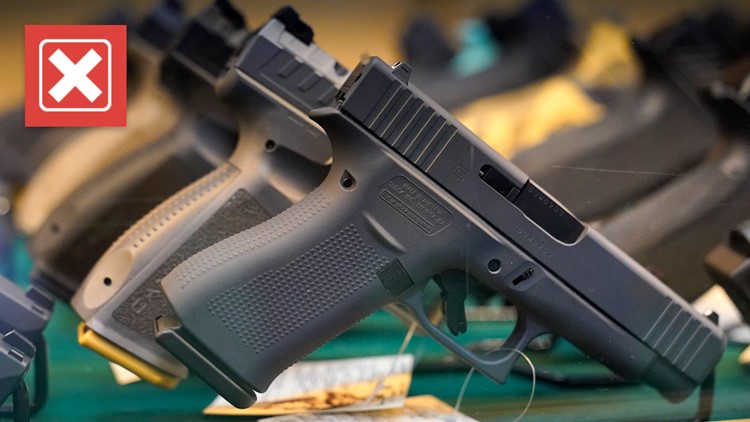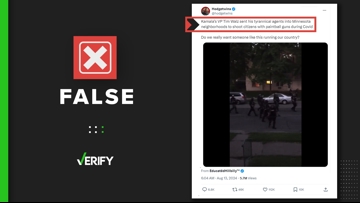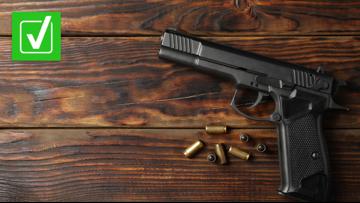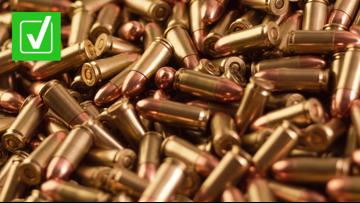Authorities suspect a U.S. Army reservist of fatally shooting 18 people at a bowling alley and restaurant in Lewiston, Maine, on Wednesday, Oct. 25. A massive search for 40-year-old Robert Card of Bowdoin, Maine, was ongoing as of Friday.
As authorities search for Card, details about his recent behavior have emerged. A U.S. official told the Associated Press that Card underwent a mental health evaluation in mid-July after he began acting erratically while with his reserve regiment.
A bulletin sent to police across the country after the mass shooting said Card had been committed to a mental health facility for two weeks this past summer after he told military officials he had been hearing voices and said he wanted to harm other soldiers.
Many states have “red flag” laws that give authorities the ability to take firearms away from people who may pose a threat to themselves or others. But a viral post on X with over 3 million views claims Maine does not have a “red flag” law.
THE QUESTION
Does Maine have a “red flag” law?
THE SOURCES
- Maine State Code
- Office of the Maine Attorney General
- Everytown for Gun Safety, a gun violence prevention organization
THE ANSWER
No, Maine does not have a “red flag” law.
WHAT WE FOUND
Maine does not have a “red flag” law, according to Everytown for Gun Safety. Instead, state lawmakers passed a “yellow flag” law in 2019, which requires more steps than “red flag” laws to seize weapons from gun owners who are viewed as a threat.
“Red flag” laws, which are also known as extreme risk laws, allow a judge to temporarily remove a person’s access to guns after a family member or law enforcement provides evidence that the person poses an immediate risk to themselves or others, Everytown for Gun Safety says on its website.
Maine’s “yellow flag” law differs from “red flag” laws passed in other states because police are required to seek a medical evaluation for anyone believed to be a threat before petitioning the court to remove a person’s access to guns.
A 2022 report published by the Office of the Maine Attorney General says the law “is not being used on a regular and responsive basis often because of the lack of an available medical practitioner to complete an assessment.”
It is unclear whether anyone attempted to use Maine’s “yellow flag” law in Robert Card’s case.
U.S. Sen. Susan Collins (R-Maine) said during an Oct. 26 news conference that from what she has heard, the state’s “yellow flag” law should have been enforced.
“The fact, the suspect was hospitalized for two weeks for mental illness should have triggered the yellow flag law. He should have been separated from his weapons,” Collins said. “I’m sure that after the fact, that it’s going to be looked at very closely.”
VERIFY partner station WUSA and the Associated Press contributed to this report.











